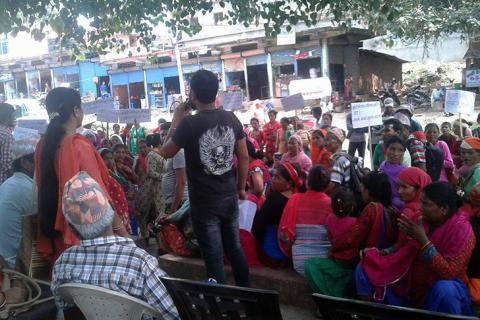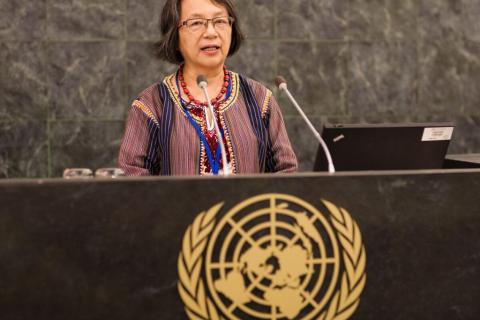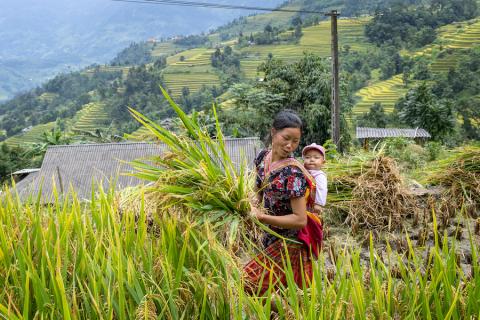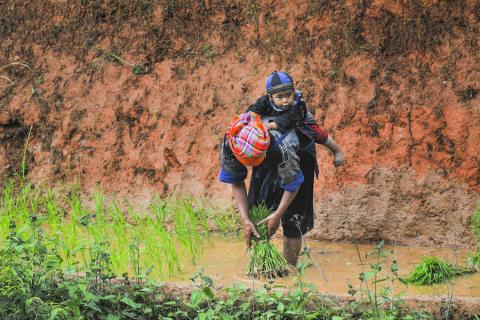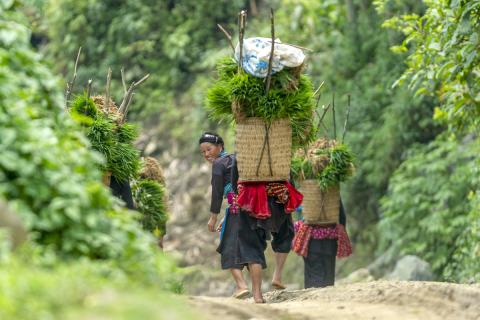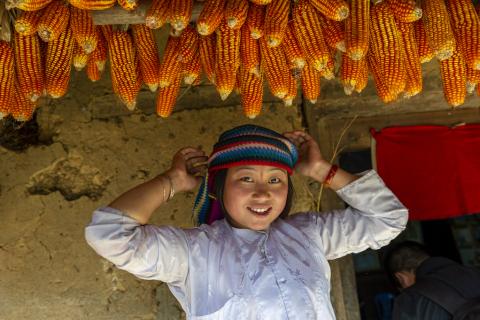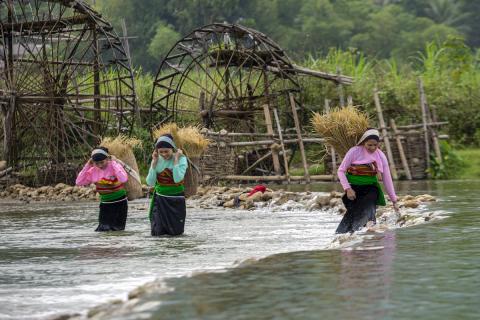
Topics and Regions
Daniel Hayward (UK) worked around Europe for 15 years as a dancer, choreographer and dance writer. Following retraining in sustainable development, he now works as an international development researcher, focused on land relations, agricultural value chains, gender, and migration. As well as working for Land Portal, Daniel is the project coordinator of the Mekong Land Research Forum at Chiang Mai University, and consultant for a variety of local and international NGOs and research institutes.
Details
Location
Contributions
Displaying 411 - 420 of 835History of land rights movement in Nepal
Article written by Radha Krishna Khadka for Online Khabar, originally posted at: https://english.onlinekhabar.com/history-of-land-rights-movement-in-nepal.html
Photo: A rally organised in Surkhet district headquarters Birendranagar demanding establishment Organised Settlement Commission on September 07, 2017
- - - - - - - - - - - -
Huge swathes of farm land swamped in eastern India after cyclone
Main photo: A man crosses a canal on a fallen tree following Cyclone Yaas in Digha, Purba Medinipur district in the eastern state of West Bengal, India, May 27, 2021. REUTERS/Rupak De Chowdhuri
More than 96,000 hectares (237,221 acres) of agricultural land has been inundated in parts of an eastern Indian state hit by a powerful storm this week, officials said on Friday, a year after the coastal region was ravaged by a super cyclone.
Looking at the future of customary rights in the forest landscapes of the Mekong region
In some closing words to the Forum, Vicky Tauli-Corpuz (UN Special Rapporteur on the Rights of Indigenous Peoples, United Nations) applauded the attention given to customary land tenure. For communities there has always been a struggle for their practices to be acknowledged, despite the fact that these existed long before the arrival of state governments. She found much promise in some of the legal work taking place in the Mekong region.
Setting the scene: What are the RAI principles and how do they apply to Mekong forest landscapes?
The second day of the Forum built upon discussions around customary land tenure in the Mekong region, but with a focus upon private sector investment practices, particularly concerning agriculture and the potential impact on smallholder farmers, the rural poor, and the environment.
Demystifying FPIC: Tools to support development, avoid conflict and respect community rights
The third session of the Forum explored the nature of FPIC (Free, Prior and Informed Consent) and how it fits into the Mekong landscape, using case studies from a Vietnamese coffee project, and a company seeking land for eucalyptus plantations in Lao PDR.
Presentation 1
Responsible Agricultural Investment in Mekong forest landscapes
The fourth session of the Mekong Land Forum introduced the ASEAN Guidelines on Promoting Responsible Agricultural Investment and identified some of the challenges ahead in implementation. Two companies shared their experiences working with a strong policy in CSR (Corporate Social Responsibility), so that we could consider how company practices can align with the Guidelines.
Trends in customary and collective forest tenure recognition in the Mekong region
The second session of the 3rd Mekong Regional Land Forum explored some of the regional and global trends in protecting local user rights in forests. In particular, it looked at some of the regional programs in social forestry and how these attempt to draw a balance between community needs and other demands for conservation, and exploitation for timber and non-timber resources.
Strengthening the land rights of local communities and women in forest areas
The task of opening a large event is never easy. Within a short space of time, you need to set out a clear agenda, freshening the perspective of the viewer, and then clear the decks for discussion to move forwards rather than retread old ground. Following some introductory greetings from Jean-François Cuénod of the Swiss Agency for Development and Cooperation (SDC), Micah Ingalls (Team Leader MRLG) took up the challenge.
Customary and Collective Forest Tenure in the Mekong Region
The first session of the 3rd Mekong Regional Land Forum looked to clarify an understanding of customary land tenure systems, and bring a focus upon communities living in and around forestland areas of the Mekong region. The session observed some of the policy developments that could lead to greater recognition of customary tenure and land security for community members.

